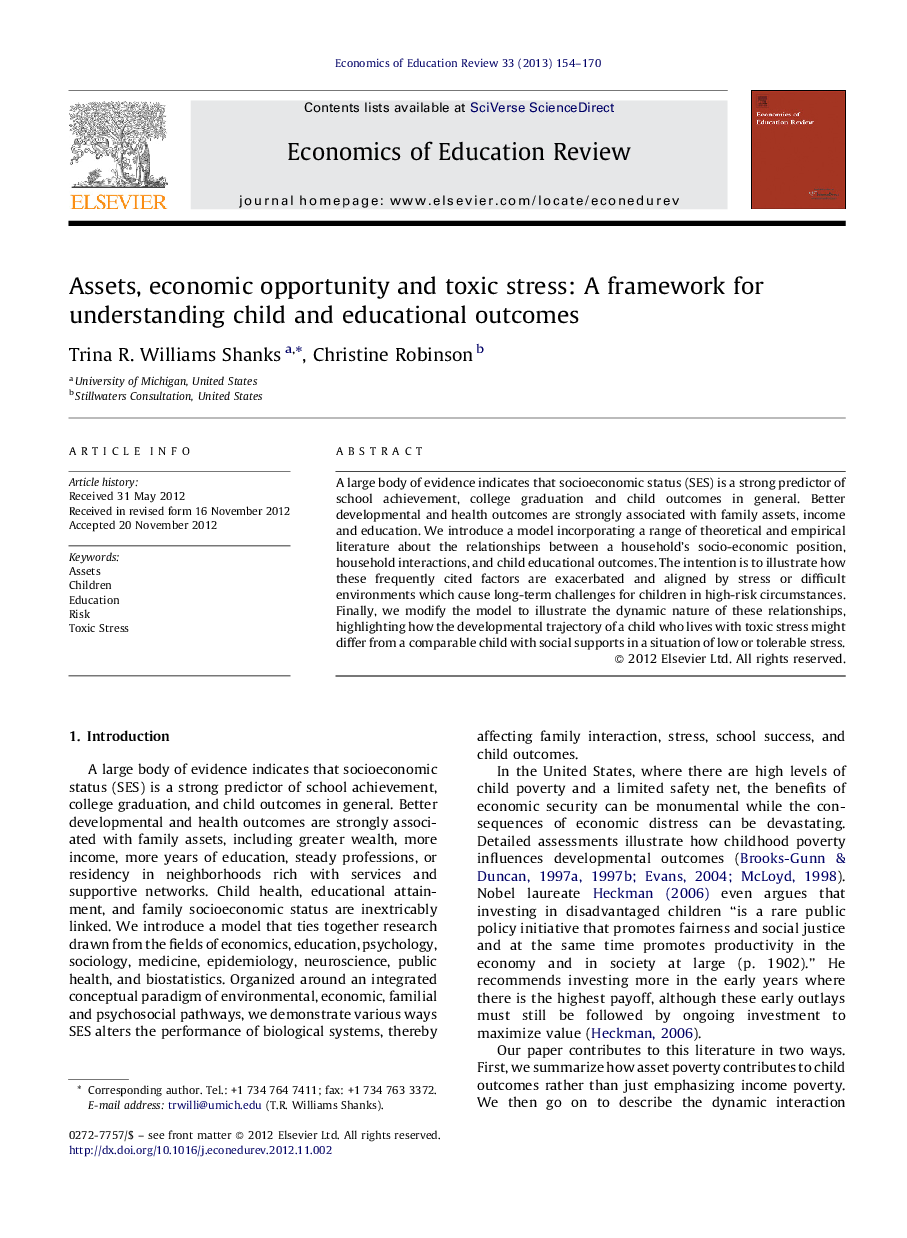| Article ID | Journal | Published Year | Pages | File Type |
|---|---|---|---|---|
| 354336 | Economics of Education Review | 2013 | 17 Pages |
A large body of evidence indicates that socioeconomic status (SES) is a strong predictor of school achievement, college graduation and child outcomes in general. Better developmental and health outcomes are strongly associated with family assets, income and education. We introduce a model incorporating a range of theoretical and empirical literature about the relationships between a household's socio-economic position, household interactions, and child educational outcomes. The intention is to illustrate how these frequently cited factors are exacerbated and aligned by stress or difficult environments which cause long-term challenges for children in high-risk circumstances. Finally, we modify the model to illustrate the dynamic nature of these relationships, highlighting how the developmental trajectory of a child who lives with toxic stress might differ from a comparable child with social supports in a situation of low or tolerable stress.
► Socioeconomic status (SES) has a strong direct influence on child outcomes. ► Household assets are an important component of SES that is often not considered. ► SES influences household interactions and a child's overall environment. ► Economically vulnerable children are more likely to face toxic stress. ► Children under toxic stress face long-term academic and physiological difficulties.
